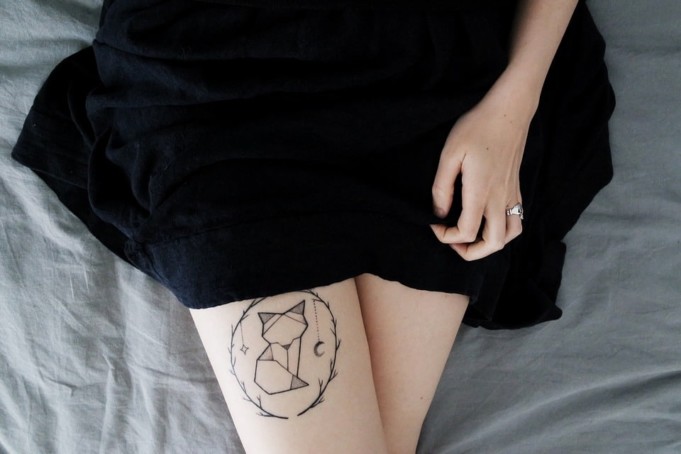Although young people might well consider themselves immune to varicose veins, the truth is that anyone can develop the condition and it is something you should consider if you are planning on getting a tattoo. Whilst young people may not be able to see varicose veins, that doesn’t mean that the underlying causes are not already at work.
So why should people getting a tattoo be concerned about varicose veins? As tattoos pierce the skin to inject ink into the dermis tissue layer, it is important to consider the possible impact on the nerve, fibers and blood vessels that lie just below the surface.
Patients already suffering from varicose veins should be extra vigilant as they may be at increased risk of the adverse side effects of tattooing such as ruptured veins or excessive bleeding and bruising. Other considerations before getting a tattoo include:
- Interference with the veins – Piercing the skin in an area over varicose veins can increase the chances of accidently injecting the ink into the enlarged vein rather than the dermis layer. This can aggravate the condition further as well as lead to an infection in the vein. From an aesthetic point of view, this is also likely to distort the image of the tattoo as the ink may travel through the veins rather than staying in place under the skin
- Damaging veins – In most cases the tattoo needle will not pierce the skin deeply enough to cause damage to varicose veins, however, in some cases where the patient is suffering from an extreme case with veins very close to the surface this can be a concern
- Difficulties in later life – It is worse considering how tattoos may affect treatment you have in later life. If you are looking to cover over the unsightly varicose veins instead of seeking treatment, the issue is likely to worsen and can lead to further complications and repercussions on your general health such as developing skin ulcers or issues with blood flow.
At a young age you may not realize that you had an issue with “hidden varicose veins”, or venous reflux, until many years after you have received a tattoo.
However, this does not mean that you are unable to receive treatment or that you should not seek specialist advice. Depending on the location of the tattoo and how extensive the varicose veins might be, there are several methods available to alleviate and treat the symptoms of varicose veins.
Basic tips to ease any pain or suffering you might feel range from wearing compression socks to ensuring you move around regularly or increase how often you exercise.
There are also several minimally invasive procedures that may be open to anyone suffering from varicose veins. According to an expert in varicose vein treatments, Endovenous Laser ablation is the most effective option when treating varicose veins around a tattooed area.
This, along with Radiofrequency ablation, is a heat-based technique that has long been one of the most popular procedures for surgeons in the UK and U.S.. In both treatments, heat energy is used to seal the veins, redirecting blood flow via the healthy veins, allowing the damaged veins to recover over a period of time.
Both techniques have very high success rates and crucially have a much lower risk of major complications and other side effects when compared to other surgeries.
Other popular treatments for varicose vein patients include Clarivein, a painless process best suited to smaller veins, and foam sclerotherapy where a chemical is injected to block the leaky veins. With these options, repeat treatments may sometimes be needed, especially when treating larger veins and reoccurrences can happen.
The method popular with the NHS requires patients to go under general anesthetic and has the risk of more severe side effects including developing deep vein thrombosis or nerve damage as a result of the procedure.
With tattoos more popular than ever, it is vital that people of all ages are fully aware of the potential implications of receiving a tattoo, especially if you are already suffering from some of the effects of varicose veins.
Don’t be tempted to dismiss varicose veins as a condition that could only affect you in later life, it is always worth speaking with a specialist before you get a tattoo, regardless of your age!












